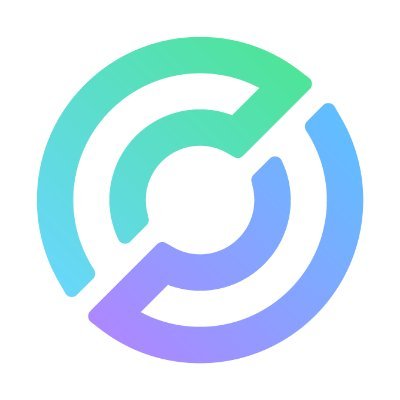Comparer Circle Wallet vs CoinSpot Wallet Wallet
In today's digital market, the trend of cryptocurrency has flooded the financial sector. With thousands of crypto coins available for trade, the necessity of a safe and secure digital wallet has gained paramount importance. The article will delve into a comparison between two major crypto-wallets - Circle Wallet and CoinSpot Wallet, to assist users in making an informed choice.
| Entreprise | ||
|---|---|---|
| User rating | 5 avis d'utilisateurs | 16 avis d'utilisateurs |
| Cryptogeek rating | ||
| Score de confiance Comment ça fonctionne |
Propos
|
Circle est un portefeuille facile à utiliser offrant la possibilité d'acheter, de transférer et d'économiser de l'argent numérique. Le nom complet de l'application était Circle Invest wallet. Sa version mobile se trouve sur Google Play et Apple Store.
|
Le portefeuille Coinspot est un service spécial fourni par Coisnpot exchange. Il fournit un portefeuille chaud pour chaque pièce que son échange négocie actuellement. Parallèlement à la crypto, il prend également en charge le dollar australien. Actuellement, le portefeuille CoinSpot contient plus de 60 pièces et jetons. L'échange intégré est une fonctionnalité supplémentaire du portefeuille ainsi que 2FA pour la sécurité supplémentaire. La seule langue disponible est l'anglais.
|
Date de fondation
| 2013 | 2013 |
Pays
| USA | Australia |
Langues
| English | English |
Type de portefeuille
| Software wallet | Software wallet |
Type de stockage
| Cold wallet | Hot wallet |
Clés privées
| Indisponible | Indisponible |
Pièces disponibles
| 6 - Bitcoin (BTC), USD Coin (USDC), Ethereum (ETH), Stellar (XLM), Algorand (ALGO), Solana (SOL) | 149 - Bitcoin (BTC), Basic Attention Token (BAT), IOTA (MIOTA), Tezos (XTZ), Ethereum Classic (ETC), NEO (NEO), VeChain (VET), OmiseGO (OMG), Qtum (QTUM), Verge (XVG), Lisk (LSK), ICON (ICX), Ontology (ONT), Bitcoin Gold (BTG), Zcash (ZEC), Nano (NANO), Populous (PPT), Bytecoin (BCN), Steem (STEEM), Wanchain (WAN), Siacoin (SC), Dogecoin (DOGE), Waves (WAVES), Zilliqa (ZIL), Decred (DCR), Aeternity (AE), Status (SNT), 0x (ZRX), Loopring (LRC), Komodo (KMD), Aion (AION), Golem (GNT), Ardor (ARDR), IOST (IOST), DigiByte (DGB), Ark (ARK), Waltonchain (WTC), aelf (ELF), PIVX (PIVX), Factom (FCT), Dragonchain (DRGN), Substratum (SUB), Mithril (MITH), Syscoin (SYS), Gas (GAS), Elastos (ELA), Voyager Token (VGX), FunFair (FUN), Nxt (NXT), Nebulas (NAS), Nucleus Vision (NCASH), OByte (GBYTE), ReddCoin (RDD), Revain (REV), WAX (WAX), SALT (SALT), Electroneum (ETN), MaidSafeCoin (MAID), Power Ledger (POWR), Zcoin (XZC), Enigma (ENG), Storj (STORJ), TenX (PAY), Neblio (NEBL), Cindicator (CND), Skycoin (SKY), Horizen (ZEN), Civic (CVC), SingularityNET (AGI), POA Network (POA), Nexus (NXS), GameCredits (GAME), Dent (DENT), Vertcoin (VTC), Quantstamp (QSP), iExec RLC (RLC), Decentraland (MANA), Polymath (POLY), Po.et (POE), Loom Network (LOOM), NULS (NULS), Enjin Coin (ENJ), Raiden Network Token (RDN), Metal (MTL), Arcblock (ABT), Pundi X (NPXS), SIRIN LABS Token (SRN), Bluzelle (BLZ), Genesis Vision (GVT), THETA (THETA), NavCoin (NAV), Gifto (GTO), Comet (CMT), AirSwap (AST), OST (OST), Scry.info (DDD), Ripio Credit Network (RCN), Streamr DATAcoin (DATA), Quantum Resistant Ledger (QRL), AdEx (ADX), UTRUST (UTK), Einsteinium (EMC2), Ambrosus (AMB), Groestlcoin (GRS), WePower (WPR), Peercoin (PPC), Crypterium (CRPT), USD Coin (USDC), Ripple (XRP), Binance Coin (BNB), Bitcoin Cash (BCH), Bitcoin SV (BSV), Cardano (ADA), Cosmos (ATOM), Dash (DASH), EOS (EOS), Ethereum (ETH), Litecoin (LTC), Monero (XMR), NEM (XEM), Stellar (XLM), Tether (USDT), Tron (TRX), Polkadot (DOT), BitTorrent (BTT), Terra (LUNA), pTokens BTC (PBTC), Crypto.com Coin (CRO), Filecoin (FIL), FTX Token (FTT), Kusama (KSM), Algorand (ALGO), NEAR Protocol (NEAR), Ocean Protocol (OCEAN), Celo (CELO), Energy Web Token (EWT), Quant (QNT), Hedera Hashgraph (HBAR), Solana (SOL), Helium (HNT), IoTeX (IOTX), TomoChain (TOMO), Chiliz (CHZ), Ankr (ANKR), IRISnet (IRIS), SUN (SUN), Hive (HIVE), Unibright (UBT), Fantom (FTM) |
Sécurité
| Pas de données | Pas de données |
Anonymat
| Pas de données | Pas de données |
Facilité d'utilisation
| Pas de données | Pas de données |
A une carte jointe
| Pas de données | Pas de données |
Dispose d'installations commerciales
| Pas de données | Pas de données |
A des bons et des offres
| Pas de données | Pas de données |
Caractéristiques
| Pas de données | Pas de données |
| Propos |
Circle est un portefeuille facile à utiliser offrant la possibilité d'acheter, de transférer et d'économiser de l'argent numérique. Le nom complet de l'application était Circle Invest wallet. Sa version mobile se trouve sur Google Play et Apple Store.
|
Le portefeuille Coinspot est un service spécial fourni par Coisnpot exchange. Il fournit un portefeuille chaud pour chaque pièce que son échange négocie actuellement. Parallèlement à la crypto, il prend également en charge le dollar australien. Actuellement, le portefeuille CoinSpot contient plus de 60 pièces et jetons. L'échange intégré est une fonctionnalité supplémentaire du portefeuille ainsi que 2FA pour la sécurité supplémentaire. La seule langue disponible est l'anglais.
|
|---|---|---|
| Date de fondation | Date de fondation 2013 | Date de fondation 2013 |
| Pays | Pays USA | Pays Australia |
| Langues | Langues English | Langues English |
| Type de portefeuille | Type de portefeuille Software wallet | Type de portefeuille Software wallet |
| Type de stockage | Type de stockage Cold wallet | Type de stockage Hot wallet |
| Clés privées | Clés privées Indisponible | Clés privées Indisponible |
| Pièces disponibles | Pièces disponibles 6 - Bitcoin (BTC), USD Coin (USDC), Ethereum (ETH), Stellar (XLM), Algorand (ALGO), Solana (SOL) | Pièces disponibles 149 - Bitcoin (BTC), Basic Attention Token (BAT), IOTA (MIOTA), Tezos (XTZ), Ethereum Classic (ETC), NEO (NEO), VeChain (VET), OmiseGO (OMG), Qtum (QTUM), Verge (XVG), Lisk (LSK), ICON (ICX), Ontology (ONT), Bitcoin Gold (BTG), Zcash (ZEC), Nano (NANO), Populous (PPT), Bytecoin (BCN), Steem (STEEM), Wanchain (WAN), Siacoin (SC), Dogecoin (DOGE), Waves (WAVES), Zilliqa (ZIL), Decred (DCR), Aeternity (AE), Status (SNT), 0x (ZRX), Loopring (LRC), Komodo (KMD), Aion (AION), Golem (GNT), Ardor (ARDR), IOST (IOST), DigiByte (DGB), Ark (ARK), Waltonchain (WTC), aelf (ELF), PIVX (PIVX), Factom (FCT), Dragonchain (DRGN), Substratum (SUB), Mithril (MITH), Syscoin (SYS), Gas (GAS), Elastos (ELA), Voyager Token (VGX), FunFair (FUN), Nxt (NXT), Nebulas (NAS), Nucleus Vision (NCASH), OByte (GBYTE), ReddCoin (RDD), Revain (REV), WAX (WAX), SALT (SALT), Electroneum (ETN), MaidSafeCoin (MAID), Power Ledger (POWR), Zcoin (XZC), Enigma (ENG), Storj (STORJ), TenX (PAY), Neblio (NEBL), Cindicator (CND), Skycoin (SKY), Horizen (ZEN), Civic (CVC), SingularityNET (AGI), POA Network (POA), Nexus (NXS), GameCredits (GAME), Dent (DENT), Vertcoin (VTC), Quantstamp (QSP), iExec RLC (RLC), Decentraland (MANA), Polymath (POLY), Po.et (POE), Loom Network (LOOM), NULS (NULS), Enjin Coin (ENJ), Raiden Network Token (RDN), Metal (MTL), Arcblock (ABT), Pundi X (NPXS), SIRIN LABS Token (SRN), Bluzelle (BLZ), Genesis Vision (GVT), THETA (THETA), NavCoin (NAV), Gifto (GTO), Comet (CMT), AirSwap (AST), OST (OST), Scry.info (DDD), Ripio Credit Network (RCN), Streamr DATAcoin (DATA), Quantum Resistant Ledger (QRL), AdEx (ADX), UTRUST (UTK), Einsteinium (EMC2), Ambrosus (AMB), Groestlcoin (GRS), WePower (WPR), Peercoin (PPC), Crypterium (CRPT), USD Coin (USDC), Ripple (XRP), Binance Coin (BNB), Bitcoin Cash (BCH), Bitcoin SV (BSV), Cardano (ADA), Cosmos (ATOM), Dash (DASH), EOS (EOS), Ethereum (ETH), Litecoin (LTC), Monero (XMR), NEM (XEM), Stellar (XLM), Tether (USDT), Tron (TRX), Polkadot (DOT), BitTorrent (BTT), Terra (LUNA), pTokens BTC (PBTC), Crypto.com Coin (CRO), Filecoin (FIL), FTX Token (FTT), Kusama (KSM), Algorand (ALGO), NEAR Protocol (NEAR), Ocean Protocol (OCEAN), Celo (CELO), Energy Web Token (EWT), Quant (QNT), Hedera Hashgraph (HBAR), Solana (SOL), Helium (HNT), IoTeX (IOTX), TomoChain (TOMO), Chiliz (CHZ), Ankr (ANKR), IRISnet (IRIS), SUN (SUN), Hive (HIVE), Unibright (UBT), Fantom (FTM) |
| Sécurité | Sécurité Pas de données | Sécurité Pas de données |
| Anonymat | Anonymat Pas de données | Anonymat Pas de données |
| Facilité d'utilisation | Facilité d'utilisation Pas de données | Facilité d'utilisation Pas de données |
| A une carte jointe | A une carte jointe Pas de données | A une carte jointe Pas de données |
| Dispose d'installations commerciales | Dispose d'installations commerciales Pas de données | Dispose d'installations commerciales Pas de données |
| A des bons et des offres | A des bons et des offres Pas de données | A des bons et des offres Pas de données |
| Caractéristiques | Caractéristiques Pas de données | Caractéristiques Pas de données |
Social
Site Internet
| www.circle.com | twitter.com |
| @circlepay | CoinSpot |
| Site Internet | Site Internet www.circle.com | Site Internet twitter.com |
|---|---|---|
| Twitter @circlepay | Twitter CoinSpot |
Avantages
| - 13 pièces cryptographiques | - Facile à utiliser et sécurisé - Confiance |
Désavantages
| - Risques liés à l'investissement | - La plateforme ne peut être utilisée que par les résidents australiens - Un dépôt avec une carte entraîne des frais de 1% |
Évaluation
| User rating | User rating 5 avis d'utilisateurs | User rating 16 avis d'utilisateurs |
|---|---|---|
| Cryptogeek rating | Cryptogeek rating | Cryptogeek rating |
| Avantages | Avantages - 13 pièces cryptographiques | Avantages - Facile à utiliser et sécurisé - Confiance |
| Désavantages | Désavantages - Risques liés à l'investissement | Désavantages - La plateforme ne peut être utilisée que par les résidents australiens - Un dépôt avec une carte entraîne des frais de 1% |
L'évaluation des utilisateurs Circle Wallet est 4.8, basée sur 5 avis des utilisateurs. L'évaluation des utilisateurs de CoinSpot Wallet est 4.3, basée sur 16 avis d'utilisateurs.
We also calculate the special Cryptogeek TrustScore based on the characteristics of each wallet.
| Nous choisissons le gagnant en fonction de notre cote decore. N'oubliez pas, c'est à vous de choisir quelle entreprise choisir! Comment calculons-nous le Score de confiance? |
In conclusion, both Circle Wallet and CoinSpot Wallet have their unique features and offerings in terms of currency support, fees, security, and customer support. Your individual requirements as for a user will play a critical role in deciding which one is a better fit. It is important to perform extensive research and weigh up the pros and cons before making a final decision. Remember, the crypto world is thrilling but also volatile, due care must be taken while diving into it.
In today's digital market, the trend of cryptocurrency has flooded the financial sector. With thousands of crypto coins available for trade, the necessity of a safe and secure digital wallet has gained paramount importance. The article will delve into a comparison between two major crypto-wallets - Circle Wallet and CoinSpot Wallet, to assist users in making an informed choice.

